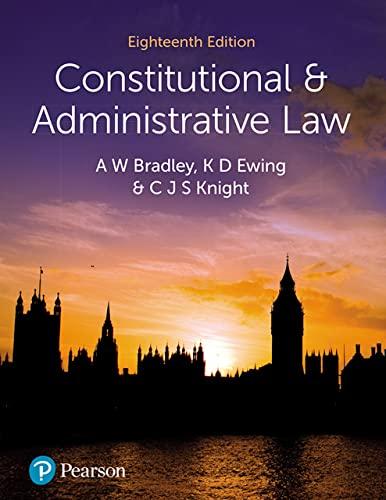Question
In the reading Jack L. Goldsmith and Eric A. Posner (2006), Introduction, The Limits of International Law , Oxford University Press: 3-17 , Why have
In the reading Jack L. Goldsmith and Eric A. Posner (2006), "Introduction," The Limits of International Law , Oxford University Press: 3-17, Why have so many claimed that international law is not real law at all? What theoretical assumptions underly the authors' understanding of and arguments about international law? (For example, what is a state, rational choice, self-interest?) How do the author's apply the logical deductions of rational choice theory to a hypothetical scenario involving borders? Do you see any examples of these hypothetical scenarios happening in the real world? In the authors' telling, why does international law emerge? Who creates it, and for whose benefit? Can you think of alternative explanations for international law?
Step by Step Solution
There are 3 Steps involved in it
Step: 1

Get Instant Access to Expert-Tailored Solutions
See step-by-step solutions with expert insights and AI powered tools for academic success
Step: 2

Step: 3

Ace Your Homework with AI
Get the answers you need in no time with our AI-driven, step-by-step assistance
Get Started


